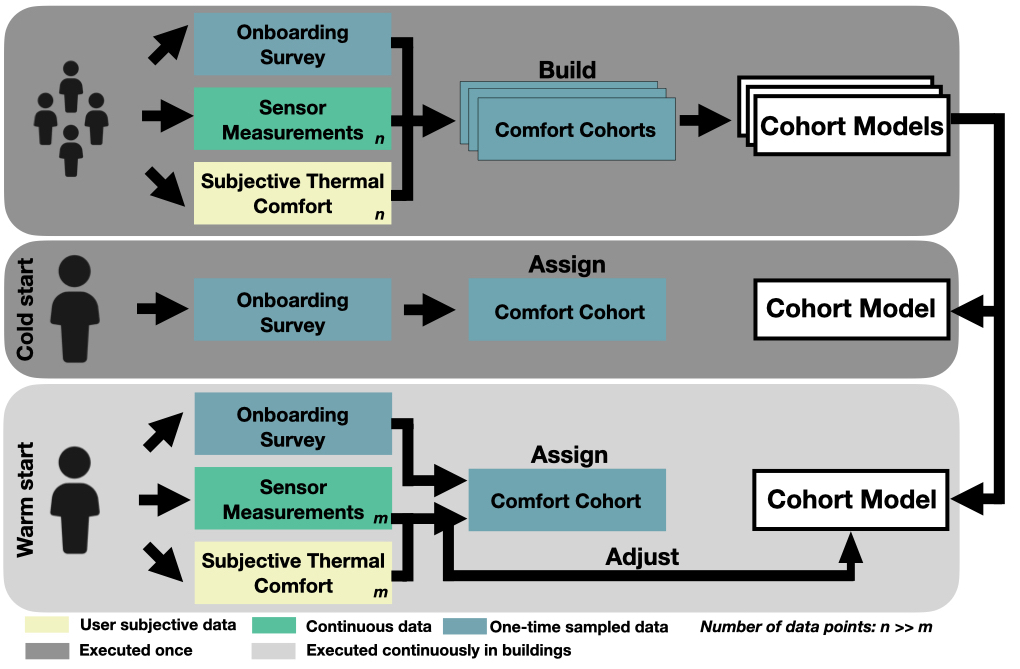Cohort-Comfort Model (CCM)
Personalized Transfer of User Preferences for Cross-domain Recommendation

Paper | Code
Abstract
Cohort Comfort Models (CCM) are introduced as a technique for creating a personalized thermal prediction for a new building occupant without the need to collect large amounts of individual comfort-related data. This approach leverages historical data collected from a sample population, who have some underlying preference similarity to the new occupant. The method uses background information such as physical and demographic characteristics and one-time onboarding surveys (satisfaction with life scale, highly sensitive person scale, personality traits) from the new occupant, as well as physiological and environmental sensor measurements paired with a few thermal preference responses. The framework was implemented using two personal comfort datasets containing longitudinal data from 55 people. The datasets comprise more than 6,000 unique right-here-right-now thermal comfort surveys. The results show that a CCM that uses only the one-time onboarding survey information of an individual occupant has generally as good or better performance as compared to conventional general-purpose models, but uses no historical longitudinal data as compared to personalized models. In the second dataset, one-third of the occupants increased their thermal preference prediction by 5% on average and up to 46%. CCM can be an important step toward the development of personalized thermal comfort models without the need to collect a large number of datapoints per person.
Related news
- Oct 13, 2022: Our paper Cohort comfort models - Using occupant’s similarity to predict personal thermal preference with less data is available in the Building and Environment Journal.
- Aug 8, 2022: Our paper Cohort comfort models – Using occupants’ similarity to predict personal thermal preference with less data is available as preprint here.
- Nov 14, 2021: My paper PhD Forum Abstract: Cohort-based Personal Comfort Models for HVAC Occupant-Centric Control was presented in BuildSys’21 at the PhD Forum.